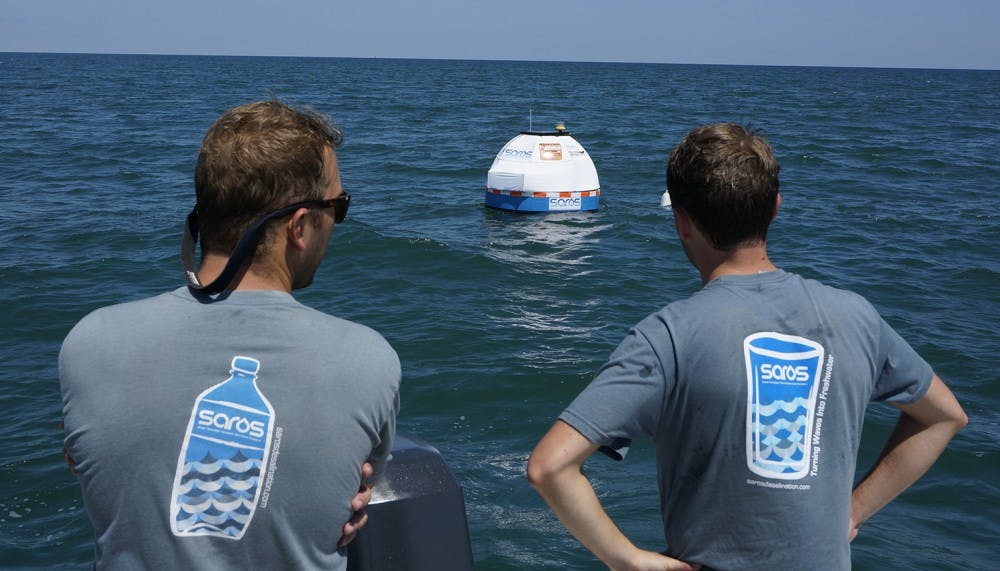Sonnett, the project’s director of research and development, said EcoH2O is working on its second prototype of the buoy, which is the main component of the Swell Actuated Reverse Osmosis System, SAROS.
According to a statement by the SAROS project, as the buoy rolls with the tide, it harvests the kinetic energy of the waves and sends water back to shore to begin the desalination process. As the water is transported, it undergoes reverse osmosis, in which pressure is applied to extract the fresh water.
“(Reverse osmosis) separates the salt from the seawater, but it also separates viruses, bacteria and all that other bad stuff,” Sonnett said. “The water is extremely clean and ready to drink.”
He said the current prototype is designed to clean 400-500 gallons, and they anticipate the planned first production unit will create 3,500 gallons of fresh water.
Matthews, SAROS’ director of engineering, said previous inventors have had complications with inadvertently taking in large amounts of salty brine in machines, which can hurt marine life by decreasing levels of salinity.
He said EcoH2O partnered with water companies to minimize the issue.
“They have really efficient energy recovery systems that take the energy in the brine output and recover it,” Matthews said.
“It’s really helpful for us because, especially in our small scale, we can run at conditions that put out much less salty brine.”



